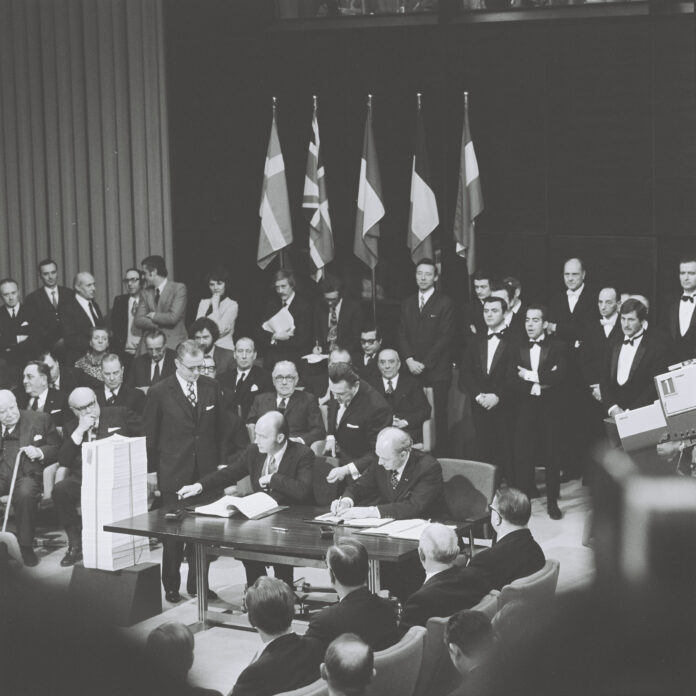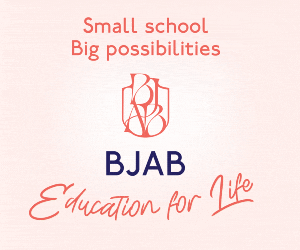In 1973 Ireland joined the European Communities. Together met with Ambassador Tom Hanney, Ireland’s Permanent Representative to the EU to find out why the Irish have never fallen out of love with Europe.
On 22 January 1972, Irish Prime Minister Jack Lynch and Foreign Affairs Minister Patrick Hillery signed Ireland’s Treaty of Accession in Brussels’ Egmont Palace along with Denmark, the United Kingdom and Norway. Norway failed to ratify the treaty, but later joined the European Economic Area and the United Kingdom voted narrowly to leave the EU in 2016. We spoke with Ireland’s top EU diplomat.
What has EU membership meant for Ireland?
When you cast your mind back to when we joined in 1973, Ireland at that time was by far the poorest member state, in the then EEC. There were serious doubts as to whether we could actually deal with membership; we probably really only got in on the coattails of the UK, because we were so linked to the UK economy.
Once we joined, there were a number of immediate impacts. First of all, our social legislation in terms of gender equality was pretty poor. For example, once women in the civil service got married they had to leave, there was no gender equality legislation.
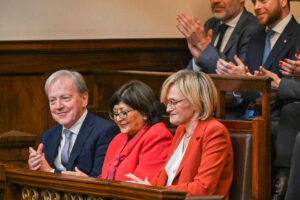
Maybe the most immediate impact in Ireland at the time was in the agricultural sector; farmers in Ireland were completely tied to the UK market. When the Common Agricultural Policy came into force, the whole UK market system situation changed, and our farmers had access to the entire European market. So incomes for the rural communities in Ireland shot up.
Over the years, Ireland has received tens of billions of euro in Structural and Cohesion funds, that money went into constructing motorways, schools, universities. The funds were well spent; I think even now, we’re regarded as one of the member states that made the best possible use of the funding and that helped the economy grow. We’re now at the point where we no longer receive cohesion funding. Instead, we’re now a considerable net contributor to the EU budget.
“Right up to this day I think there’s a very strong public perception that we have benefited hugely”
Through our access to the Single Market of 500 million people, we’ve continued to attract foreign direct investment into Ireland and develop Irish companies. Without that we would be in a much poorer place. We also benefit from many programmes like Erasmus and the Horizon research programme. So right up to this day I think there’s a very strong public perception that when you put all of this together, we have benefited hugely.
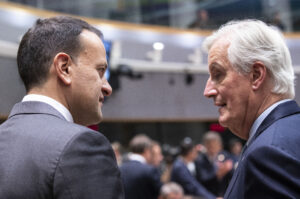 The European Union has always been an extremely strong supporter of the peace process in Ireland and has given very large financial contributions over the years through the PEACE Programme.
The European Union has always been an extremely strong supporter of the peace process in Ireland and has given very large financial contributions over the years through the PEACE Programme.
And then finally, in more recent years, we have enjoyed the very strong solidarity from our partners in the EU as we’ve tried to cope with the fallout from Brexit. So it’s a long answer, but this is why there is strong public support for membership.
During the financial crisis there was a lot of criticism of the EU and, as you say, Ireland is now a net contributor. Has that changed how Europe is perceived in Ireland?
 First of all, with the financial crisis, for a period we were subjected to a programme that was run by the European Commission, the European Central Bank (ECB) and the IMF. At that time, I think it is fair to say mistakes were made. In retrospect, even the IMF, the ECB and the Commission recognize that some of the decisions at the time were mistaken. There was a level of austerity imposed that did cause a very negative public reaction. I think it’s only fair to recognize that even to this day, the perceptions are coloured by the very difficult experience we had at that time, but since we’ve recovered there are other aspects of Europe that have come to the fore, including the Brexit negotiations. I think public trust has largely been restored, but it was a shadow on our perception of Europe.
First of all, with the financial crisis, for a period we were subjected to a programme that was run by the European Commission, the European Central Bank (ECB) and the IMF. At that time, I think it is fair to say mistakes were made. In retrospect, even the IMF, the ECB and the Commission recognize that some of the decisions at the time were mistaken. There was a level of austerity imposed that did cause a very negative public reaction. I think it’s only fair to recognize that even to this day, the perceptions are coloured by the very difficult experience we had at that time, but since we’ve recovered there are other aspects of Europe that have come to the fore, including the Brexit negotiations. I think public trust has largely been restored, but it was a shadow on our perception of Europe.
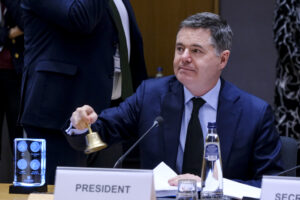
On being a net contributor, it’s never been played up in Ireland in the way it has been in the UK. There is an acknowledgement that we have done very well in Europe, that we benefit from access to the Single Market, political influence, membership of a broad, influential global family, that is worth paying for. We don’t see Europe as a zero sum game. That said, as what we contribute grows, this may be seen in a more negative light. But I think when you look at it on balance, it’s money well spent.
Polls in Ireland consistently show that there is a very positive view of the European Union. More recent EU members have become quite sceptical about the EU, in particular, Poland and Hungary. Like Ireland, they have benefited enormously from EU funding and being part of the Single Market, why do you think their outlook is so different?
It is an interesting question as to why our path should be so different and why we continue to have these very high levels of public support. I think, in part, you have to look at our very different histories. When Ireland gained independence in 1922 we remained in the shadow of the UK and our economic links with Britain were very strong. Membership enabled us to develop a completely different relationship with Britain, a much more normal relationship and I think people have seen that as one of the benefits. We emerged from the shadow to take our place among nations, as it was said.
“Ireland has a very different national consciousness, because of our diaspora, we have a different view of the world”
If you look at Poland and Hungary, their economies and societies suffered several decades under the assault of Soviet repression. No sooner had they recovered their sovereignty than they started the process of accession into the European Union. That adjustment over a relatively short period in those countries has been very different and difficult, our transition was much earlier into the EEC. The historical circumstances for Ireland were very different.
Ireland also has a very different national consciousness, because of our diaspora, we have a different view of the world. The reasons are no doubt complex, but I think it comes down to our very different historical experiences.
“I think it’s only in retrospect that we all realized how important the European Union was to the success of the Good Friday Agreement”
This year also marks 25 years since the Good Friday Agreement. Do you think Europe has been instrumental in making that agreement work?
I think it’s only in retrospect that we all realized how important the European Union was to the success of the Good Friday Agreement. At the time it was negotiated, Europe wasn’t a big feature in the discussions, it was all very much a British/Irish, North/South, East/West discussion. We probably all assumed that the UK and Ireland would remain in the EU. It was only when the UK decided to leave that the issue of the border became central, that we realized how important the European Union – and the fact that we were both in the European Union – was to its success. The debate in the UK didn’t really talk about Northern Ireland at all. The disappearance of customs checks and controls was entirely due to the EU and the Single Market. When Britain left, the border became a central issue.
What is Ireland’s relationship with the UK like now?
Since Brexit, the relationship between Dublin and London has become very difficult. When we were both members of the EU, and in the wake of the Good Friday Agreement, we were becoming closer and closer. On the EU agenda, we had a lot of issues in common and we worked very closely here in Brussels.
In the past six months under the Sunak government, there are signs that dialogue between London and Dublin has improved. Particularly because the UK is now seriously engaged in trying to find a solution to the implementation difficulties in the Northern Ireland Protocol. This is very positive and has greatly helped. So I think in Dublin, we’re increasingly confident that the relationship is improving.
Do you miss the UK?
We do miss them here in Brussels, they were a very important partner for us. Nonetheless, I think we’ve all adjusted to their absence, we know they’re not coming back. Ireland has found that we’re now moving much closer to countries like Sweden, Finland, the Netherlands, Belgium and Luxembourg than we were before. So we’ve found a new family to compensate for the loss of the UK.
The first Irish Ambassador to the EU, Seán Kennan, said that “membership would contribute significantly to the ending of partition” in Ireland. Would you agree?
All of Ireland’s political parties favour Irish unification. What is important for us at the moment, is to bring Northern Ireland and the South closer together. So the former Taoiseach Micheál Martin, who is now our minister, established the Shared Island unit, which is designed to develop cooperation between the North and South, from the environment to infrastructure, to health and education, where the relationship needs to be properly developed. We would hope that as the two sides grow closer together and understand one another more, and cooperate more, that the appetite for unification would grow, but there needs to be a pathway developed towards unification rather than a sort of a big bang.
Ireland is holding a series of events to mark and celebrate 50 years of Ireland’s membership of the European Union over the year: www.ireland.ie/en/eu50


